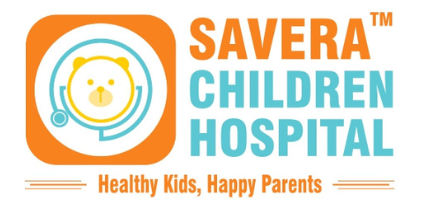Breastfeeding benefits both your baby’s physical and mental development as well as your own health. We’ll go through the benefits of breastfeeding for both mom and baby in this article. Keep reading to learn about the advantages of breastfeeding for Mom and Baby.
Benefits for the baby include:
Breastfeeding boosts a child’s sickness and infection resistance:
- Antibodies in breast milk assist your baby in fighting viruses and germs.
- Colostrums, the milk produced by women in the first few days after giving birth, are the most important immunological component. It protects your baby’s intestines, nose, and throat from germs by producing a protective coating on the mucous membranes.
- Diarrhea is three to four times more likely to develop in formula-fed newborns than in breast-fed infants. Breastfeeding has been demonstrated to lower the risk of ear infections in children.
Allergies are less common in children who are breastfed:
- Another obvious advantage of breastfeeding is allergy prevention.
- Eczema, a type of allergic response, is far less common among breast-fed newborns. This effect is most noticeable in children whose parents suffer from allergies.
Breastfeeding improves the IQ of a child:
- Breastfeeding and cognitive development have been linked by a number of studies.
- It’s largely due to the fact that breast-fed youngsters have less psychological, behavioural, and learning issues as they become older.
Breast-fed children are substantially less likely to become fat later in life.
- Formula feeding has been associated to a 20-30% increased risk of obesity in children later in life.
- Breastfeeding is recommended by the best Pediatrician in Faridabad – Dr. Supriya Rastogi to help minimise your child’s chance of becoming overweight or obese.
- Children who are entirely breastfed show the greatest reduction in obesity, and the longer the baby was nursed, the greater the association.
Sudden Infant Death Syndrome (SIDS) is reduced when a baby is breastfed:
- Breastfeeding exclusively for the first month of life has been demonstrated to lessen the risk of SIDS by 50%.
Hypertension and heart disease are less common in the elderly life:
- Adults who were breastfed as infants have lower blood pressure on average than those who were formula fed, according to many studies.
- As a result, individuals who were breastfed as children are less likely to acquire heart disease.
Benefits to Mother include:
Helps with postpartum weight reduction.
- When compared to formula-feeding mothers, breastfeeding women regain their pre-pregnancy weight significantly faster.
- Lactation burns a lot of calories since their bodies create milk.
- Some of the weight accumulated during pregnancy actually acts as a source of energy for nursing.
- Breastfeeding also aids moms in the early stages of uterine involution to a pre-pregnancy condition.
- Breastfeeding allows the mother’s uterus to recover to its normal size more rapidly by releasing a hormone called oxytocin.
Child spacing has several benefits.
- When a woman gives birth and then feeds her baby, she shields herself from becoming pregnant again too soon, a method of birth control that has been proven to be 98 percent successful, far more effective than a diaphragm or other contraception.
- Breastfeeding slows ovulation, and the longer a mother breastfeeds, the more natural child spacing she may practise.
Breast cancer risk is reduced.
- Breastfeeding reduces the chance of getting breast cancer by up to 25% in women.
Uterine and ovarian cancer risk is reduced.
- Breastfeeding mothers have been proven to have a lower risk of uterine, endometrial, and ovarian cancer due to reduced oestrogen levels during nursing.
Osteoporosis is lessened.
- Breastfeeding appears to lower the risk of osteoporosis in the mother later in life.
- Despite the fact that moms lose bone mineral density when nursing, it is repaired and even enhanced following lactation.
- Non-breastfeeding women are four times more likely than breastfeeding women to acquire osteoporosis, and they are more prone to suffer hip fractures in their post-menopausal years.
Enhances emotional well-being
- Breastfeeding women are less likely than formula-feeding mothers to experience postpartum anxiety and despair.
- The mother’s emotional health may be improved by the bond she forms with her newborn while nursing, resulting in less anxious sensations and a deeper sense of connection with her child.
- The capacity of a mother to create all of the nutrients that her kid requires might give her a sense of security.
- According to studies, the link between a nursing mother and her infant is greater than any other human interaction.
- Breastfeeding interactions provide the foundation of the mother-child bond. This sensation establishes the health and psychological framework for the years ahead.
Breastfeeding is less expensive.
Formula feeding your baby costs between Rs 30,000 and Rs 50,000 each year. Breastfeeding, on the other hand, is easily available and completely free!
Breastfed babies are less likely to require extensive medical care as they grow older.

